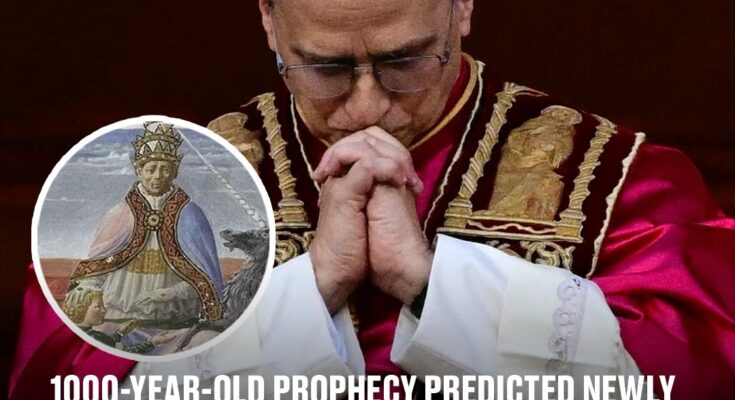
Pope Leo XIV has been elected and its apparently bad news
Catholics around the world are celebrating the election of Pope Leo XIV, who has been chosen to lead the Church after the passing of Pope Francis on Easter Monday, April 22, at the age of 88.
Pope Leo XIV, formerly known as Cardinal Robert Prevost, was confirmed as the new pontiff earlier today, May 8. The sight of white smoke rising from the chimney of the Sistine Chapel marks a moment of joy for followers of the Catholic faith, as well as for the people of America and Peru, where Pope Leo XIV spent much of his career.
However, there is one group that isn’t quite as enthusiastic about the election of a new pope: conspiracy theorists.

Catholics of the world, here is your new pope (Marco Mantovani/Getty Images)
That’s right, folks. While the election of Pope Leo XIV is being celebrated, some are cautioning to “enjoy it while you can,” due to a resurfaced 100-year-old prophecy. This prophecy, attributed to Saint Malachy, suggests that the 69-year-old Pope could be the last Bishop of Rome.
For those unfamiliar with the prophecy, it was allegedly written in the 1100s by Saint Malachy, a figure who became known simply as ‘Malachy’ during his lifetime. The text, titled “Prophecy of the Popes,” is said to predict the future of the papacy, and true to the nature of prophecies, it paints a grim picture for mankind’s future.
According to Malachy’s prophecy, there would be 112 popes after his own time. Some interpretations suggest that Pope Leo XIV might be the final pope in the list, setting off speculation and intrigue surrounding his papacy.

But it could be bad news for humanity (Getty Stock Images)
The prophecy ends with a mysterious figure known as “Peter the Roman,” who is said to serve as the final Bishop of Rome during the end times. According to the text, Peter the Roman’s reign will unfold like this:
“Peter the Roman, who will pasture his sheep in many tribulations, and when these things are finished, the city of seven hills will be destroyed, and the dreadful judge will judge his people. The End.”
This ominous prediction has caused a stir, but skeptics are quick to point out some glaring inconsistencies. For one, the name “Peter the Roman” doesn’t align with Pope Leo XIV’s birth name, Robert Francis Prevost, which doesn’t even include “Peter.” Additionally, the title “Roman” is somewhat misleading, given that Pope Leo XIV holds dual citizenship in the United States and Peru, not Italy, where one might expect a pope named “Peter the Roman” to originate.
Given these discrepancies, it’s fair to say that Saint Malachy’s prophecy may not have been spot on regarding the current papacy. Nonetheless, the mystery surrounding this ancient text continues to captivate the imagination of many.

Fortunately for us, the prophecy has since been largely debunked (Public Domain)
Some have speculated that the late Pope Francis could have been the “Peter the Roman” described in the prophecy, but this theory has been dismissed for similar reasons. Josh Canning, the director of Toronto’s Chaplaincy at the Newman Centre, stated in 2013, via Global News, “I don’t know how you can connect Peter the Roman with Pope Francis.”
For now, if we wake up tomorrow to comets raining from the sky and nuclear missiles flying, I’ll gladly admit I was wrong. But, until then, it seems Pope Leo XIV has more immediate concerns than an ancient prophecy that may or may not have been penned by someone named Saint Malachy.
Featured Image Credit: British Museum


